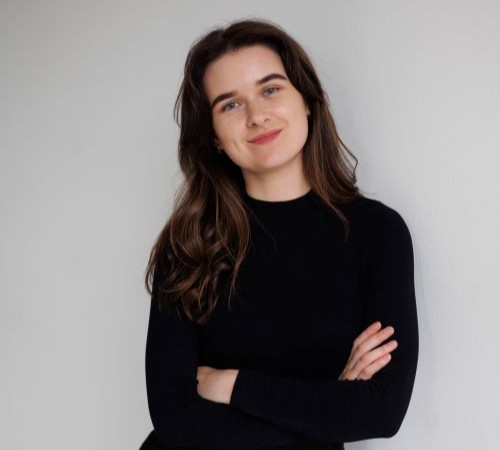From ballet to engineering
Naomi started ballet lessons aged four and hoped to one day be a professional dancer, but after suffering a knee injury at 14, she was told she may never dance again. She decided to pursue a career in engineering instead, after excelling in STEM subjects at school. She studied product design engineering at Queens University Belfast.
Naomi applied for the ELS after seeing how the programme had benefited some of her peers. “These were people I saw as role models so I thought I should be following their footsteps,” she says. “I saw how the ELS had helped them in terms of funding, the network and the wider experience, and how they had used this to go on to do impressive things.” She was unsuccessful in her first application but tried again the following year. “The first time I applied, I tried to sound as much like an engineer as possible. Reading it back, I could see that my application had no personality, energy or drive,” she says. “The next year, I wrote it as my most authentic self, as natural as possible, and I got it."

International study
Naomi used her funding to attend two summer university residentials – the first in China and the second in Denmark. “Financially, I wouldn’t have been able to do it without the ELS,” she says.
She also used the funding on a virtual training course on early-stage prototyping and development within sports science. “A lot of what I learnt on this course helped me develop my future startup, Movetru.”
From university project to successful startup
Movetru was born out of Naomi’s final year dissertation at university. Using her personal experience as a former ballet dancer, Naomi developed a wearable technology product that aims to reduce injury risk and advance athletic performance. “I really wanted to put the wellbeing of athletes at the forefront of my project,” she says.
After finishing university, she decided to defer her graduate job and develop Movetru. “I watched other ELS candidates take huge risks and launch their own startups. It was inspirational and gave me the confidence to do the same,” she says.
The entire point of the ELS is to find the next leaders in engineering and you're only going to get people on board with your ideas if you are passionate about them.
Injury mitigation on a global scale
Movetru gives real-time on-field movement quality analysis. Through research with more than 100 athletes – 70% of whom are female – the company has already developed insights to help reduce injury risks, particularly for women who are up to eight times more likely to suffer ACL (knee ligament) injuries.
Movetru is now in its fifth year, and Naomi says that it has been an incredible experience. “I spent the first two years building the company in my parent’s garage during a global pandemic. Then the next three years have been spent expanding the business,” she says. “We have just received international investment and are now looking to scale the business globally. We want to be at the forefront of wearable technology and transform athlete wellbeing on a global scale.”
Naomi has won numerous accolades. She was awarded the Academy’s Enterprise Scholarship in 2021 and was recently named in the Forbes 30 Under 30 Europe list for Social Impact.
Interested in participating in the Engineering Leaders Scholarship?
Visit the programme pages to find out more about how it could benefit you and your career.
